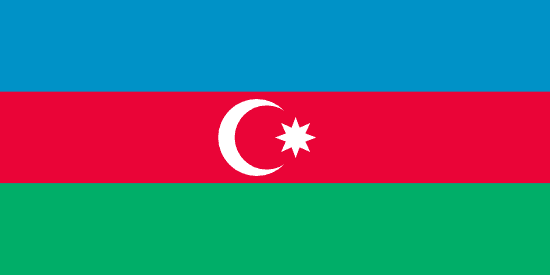"Bakı – Qələbə yolu | Baku - The Victory Road"
About:
Baku, the capital of Azerbaijan, was first documented in the 5th century AD. Its strategic location and oil resources led to numerous invasions and changes in control, including the Arabs, Persians, Ottomans, and Russians. Baku's oil industry boomed in the late 19th century, attracting international attention. After a brief period of independence, it became part of the Soviet Union in 1920. Since Azerbaijan's independence in 1991, Baku has undergone significant modernization and growth.
When to visit:
Baku, the vibrant capital city of Azerbaijan, is a fascinating destination to explore on a holiday. The best time to visit Baku is during the months of April to June and September to October, when the weather is pleasant and suitable for outdoor activities. Avoid visiting during the scorching hot summer months of July and August, as temperatures can soar above 40 degrees Celsius, making sightseeing uncomfortable. Additionally, Baku hosts various events and festivals throughout the year, offering visitors a chance to experience the city's rich culture and heritage.
When to avoid:
Traveling to Baku, the capital of Azerbaijan, during the summer months of July and August may not be the most ideal choice for holidaymakers seeking pleasant weather conditions. The city experiences extreme heat during this time, with temperatures often exceeding 40 degrees Celsius (104 degrees Fahrenheit). Additionally, these months coincide with the peak tourist season, resulting in crowded attractions and higher prices for accommodations. To avoid the discomfort of sweltering heat and the hustle and bustle of peak tourism, travelers may find it more enjoyable to visit Baku during the shoulder seasons of spring or fall.
Winter (Dec-Feb)
In Baku, the coldest and wettest period is typically in January and February. Average temperatures hover around 4°C, and it experiences its highest rainfall, about 30mm per month. The city is often overcast, with only 3-4 hours of sunlight per day. Fog is common, adding a chilly dampness to the air. An average day for a visitor during this period would involve bundling up in warm clothing and braving the drizzle, with indoor activities like museum visits being a popular choice.
Spring (March–May)
Spring (March–May)
Language:
In Baku, the capital city of Azerbaijan, the most commonly spoken language is Azerbaijani. This Turkic language is the official language of the country. Russian is also widely understood and spoken by a significant portion of the population, due to Azerbaijan's history as part of the Soviet Union. Additionally, English is increasingly taught in schools and used in business settings.




